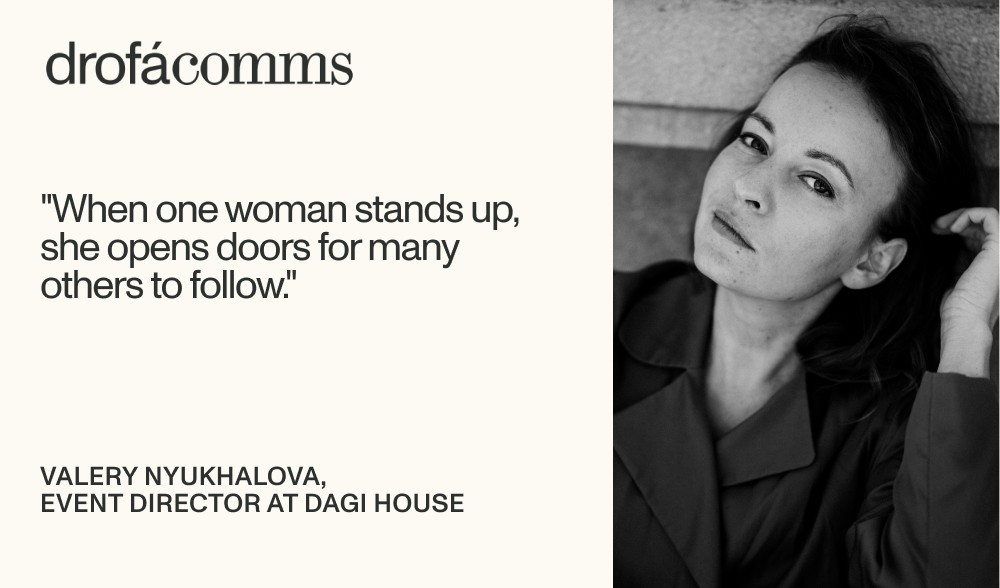This article originally appeared on Forbes Business Council, where Valentina Drofa as a member has been sharing her expertise since December 2022.
If you ask me about the aspect of my business that I started paying unprecedented attention to recently, I’d say without hesitation that it’s the corporate culture. It happened so that I realized the value and possibilities a strong corporate culture could give later in my years of building a business. But better late than never. First, I had to visualize how I wanted to see my own company in the fintech market, then what kind of employees would have a shared vision, and, most importantly, what kind of CEO I should be.
The fintech industry is currently facing a crisis, with the “Great Resignation” resulting in a high rate of employee turnover and workplace strikes. To retain employees and create a comfortable work environment, businesses should focus on developing a corporate culture that values diversity, individuality, and continuous training.
Diversity in Unity: Finding Strength in Our Differences
In a typical fintech company, professionals from different backgrounds and generations work together. To ensure that each employee feels valued, it’s important to take an individual approach, considering their personal qualities, strengths, and weaknesses. Communication between employees should be transparent, and guidelines can be introduced to ensure that everyone is on the same page.
For example, I have introduced transparent internal communications guidelines between employees, including company founders. My team followed the lead and developed communication checklists between different departments, specifying how to assign tasks to each other and notify colleagues when they are ready. In addition, we have introduced a “day of silence” in the company with no calls or meetings on Wednesdays, so there is time to focus on current tasks.
Becoming the Role Model for Gen Z
Corporate culture is also important in attracting and retaining Gen Z talent. To appeal to this generation, companies should prioritize work-life balance, mental health, and lack of toxicity over financial motivators. If you haven’t heard of a “quiet quitting” phenomenon, it stands for precisely that. In fact, most employees are burned out, as more than 80% of workers feel overwhelmed. Turnover is high as well. The good news is that thoughtful corporate culture can help tick all the boxes and attract and retain the best Gen Z talents.
Corporate culture is more than just cookies and fresh fruits in the office kitchen (although, who’d reject such a treatment)?; it’s a set of values that should be conveyed to employees by company leaders. If the company management represents toxic workplace behavior, it’ll directly affect the employees and validate such unhealthy practices. To attract talent with corporate culture, leaders should lead by example. If you want everyone to be on time for a Zoom meeting and respect your schedule, then be on time yourself. We introduced a fun yet orderly rule with my team — meeting’s latecomer recites a short verse. And I am no exception to the rule.
Education Is Still the Key
Education and training should also be prioritized, especially in a post-pandemic fintech industry that continues to operate remotely. A thorough education hub can support professionals from each department in their career development and keep them up to date with the latest industry developments.
I have high requirements for each team member, their education and skills. We’re currently working on a thorough education hub that will support professionals from each department in their career development. After all, by reading one book, you’re already becoming one book smarter than your competitor.
Final Thoughts
As corporate culture is becoming a hot topic among HR teams globally, it must likewise become a concern for every company leader. To attract and retain the best talent, companies should invest in education and corporate culture initiatives and hire diverse professionals while avoiding a clearcut portrait of a “perfect” employee. Instead, they should learn to adapt to different personalities and develop a comfortable communication style.
Schedule your free consultation
A review of your current communications activities
General recommendations on what to focus on
PR Consultant's vision on how PR could help your business growth
other materials
All articles







